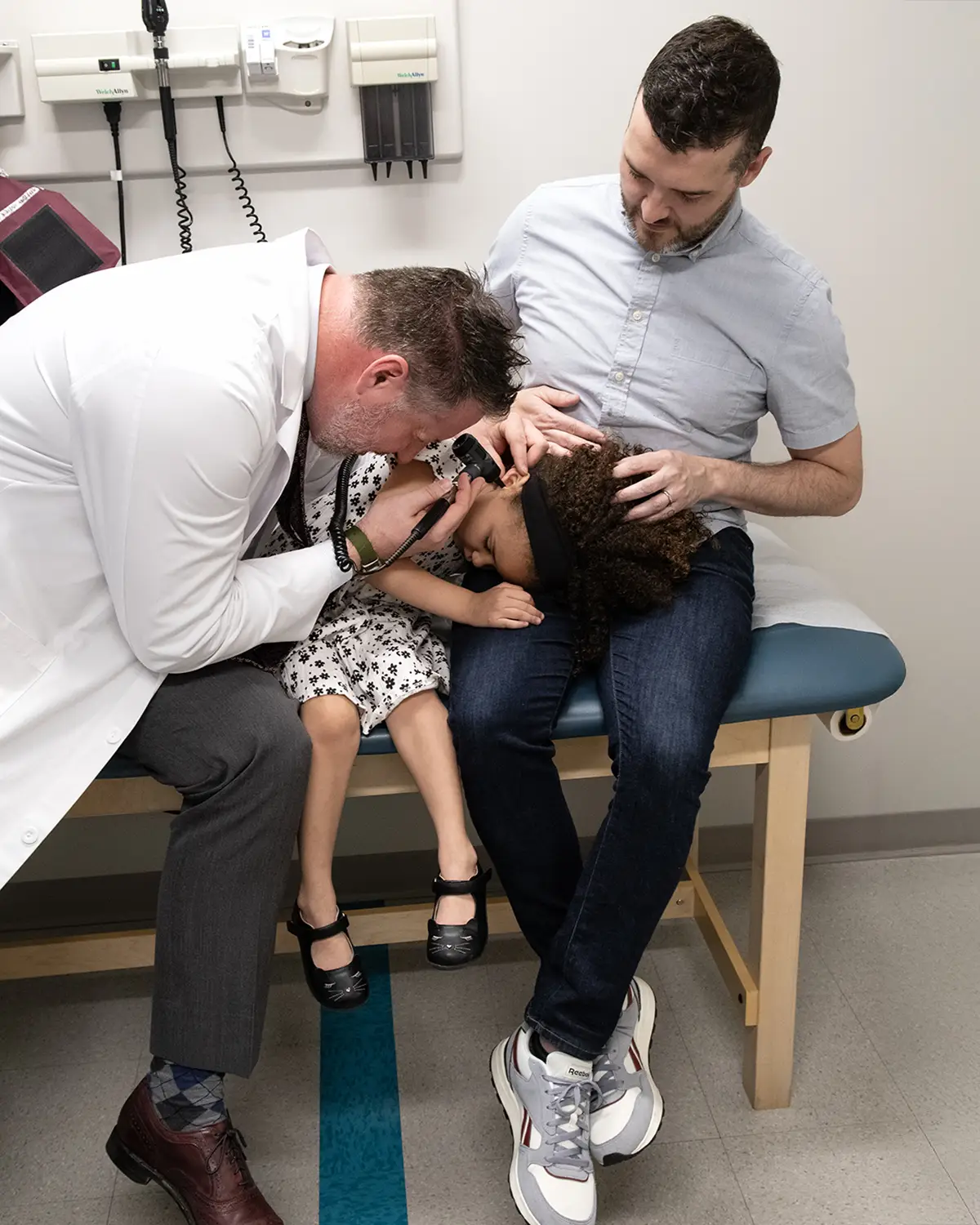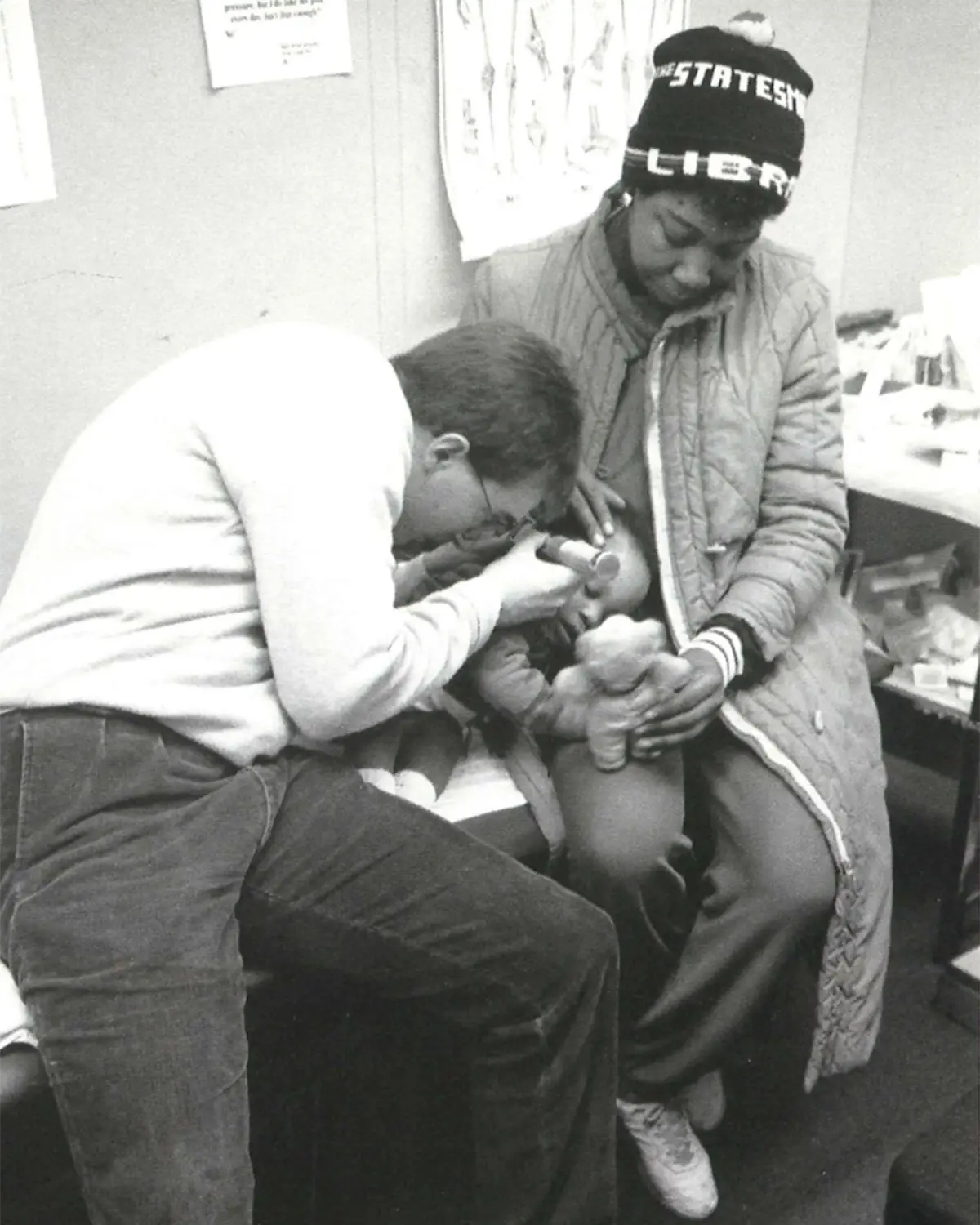Then and Now: Peter Bidey and Family Medicine
PCOM at 125
December 16, 2024Reflecting on both his own career and the history of family medicine, Peter Bidey, DO '08, MSEd, FACOFP, dean of the osteopathic medicine program and chief academic officer at PCOM, shares insights into how the field has grown
and changed. Even as new medical treatments and technological advancements emerge,
Dr. Bidey recognizes that family medicine's enduring commitment to compassionate,
whole-person care remains steadfast at PCOM.
Dr. Bidey emphasizes that despite advancements in medical treatments and technology,
PCOM holds a dedication to compassionate patient care.
Dr. Bidey takes the “family” part of family medicine very seriously. Some family physicians
have patients they've cared for since birth—sometimes even having delivered them.
Family medicine involves caring for individuals of all ages and backgrounds throughout
their lives. In some cases, family physicians may also have treated multiple generations
within the same family—parents, grandparents, and grandchildren—for decades. By nurturing
these long-term, multi-generational relationships, family physicians can better understand
each patient's unique history and provide more comprehensive, personalized care.
“There is something truly unique in this,” said Dr. Bidey. “We are able to not only
know the medical side of the patient's care, but we are also uniquely attuned to their
mental, social, and spiritual sides of their care because we have built these relationships
over the course of many years.”
Family doctors are often the first medical professionals patients turn to when concerns
arise, and they may be the last clinicians patients consult before making crucial
decisions about their care. In recent years, both medical technology and access to
information have grown exponentially. Innovations such as telemedicine, artificial
intelligence, electronic health records, new medications and vaccines, as well as
evolving guidelines and screening tests, have become integral to the everyday practice
of family medicine.
“It is our responsibility to stay up to date and current with these advances so we
can always give the best recommendations to our patients,” said Dr. Bidey. “We have
to evolve with our patients.”
Despite these technological leaps, one aspect remains unchanged: the compassion and
dependability of family physicians.
“Whether it is a parent calling about their child's first fever, a newly pregnant
patient experiencing nausea, an elderly patient who lost their insulin on vacation,
or someone struggling with depression after the loss of a loved one, we are always
there—ready and equipped to help, no matter the problem,” said Dr. Bidey.
Looking ahead, Dr. Bidey hopes that family physicians will continue to find new and
advantageous ways to use these emerging technologies.
“When I reflect upon the picture above, one of the greatest joys I think all physicians
have is that when someone is sick, we have the unique ability to speak with them,
do a history and physical, and often before they leave the room, we can help heal
their illness through osteopathic manipulation, medications, and other treatment modalities,”
said Dr. Bidey.
By harnessing new technological advancements, Dr. Bidey hopes that family physicians
will continue doing what they do best–treating their patients with compassion, expertise,
and a personal touch.



